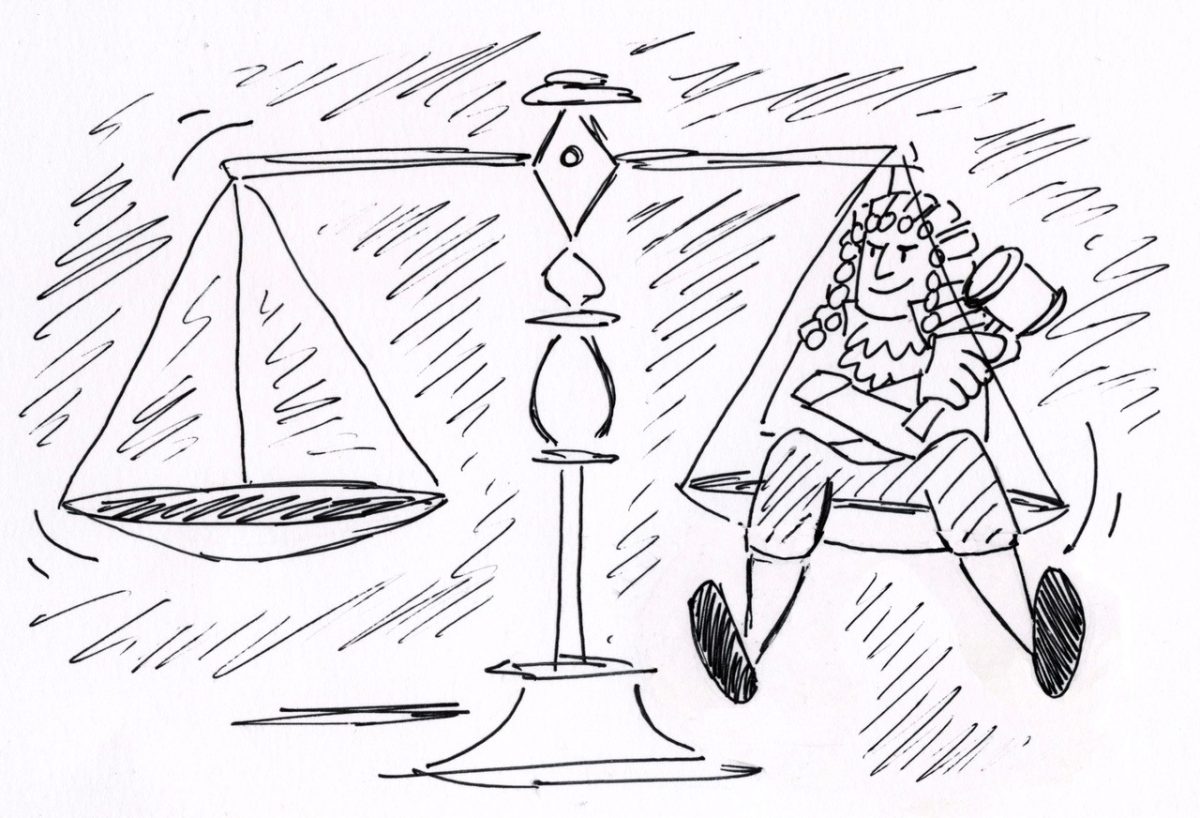The culmination of intense political divide and shattered trust between politicians, fiery disagreements over a spending bill and the risk of a government shutdown looming overhead led Kevin McCarthy, the Speaker of the House, to be removed from office on Oct. 3, 2023.
Prior to McCarthy’s removal from office, his election into office was strenuous, with 15 votes having been held to elect him in the House. While McCarthy did get the speaker position, he angered far-right Republican representatives, notably Matt Gaetz of Florida, by his willingness to compromise some Republican values in order to come to an agreement with the Democrats. Throughout McCarthy’s time in office, Gaetz grew frustrated with his willingness to not uphold strong conservative viewpoints and continually threatened to use his power to remove him from office.
“Gaetz has for months threatened to use the procedural tool — called a motion to vacate — to try to strip McCarthy of his office. Those threats escalated over the weekend after McCarthy relied on Democrats to provide the necessary votes to fund the government,” said Farnoush Amiri & Kevin Freking, journalists for AP News.
Despite McCarthy’s attempts to compromise with the Democrats in the latest spending bill, he angered them during his tenure by upholding his Republican values. While it is not uncommon for a Speaker of one party to disagree with the opposing party in the House, the Democrats’ hatred towards him only continued to grow, especially leading up to his removal from office.
“McCarthy had repeatedly angered Democrats in recent weeks, including by launching an impeachment inquiry into Biden and on Saturday by giving them little time to read a stopgap spending bill to avert a government shutdown that he needed their votes to pass,” said Moira Warburton, Richard Cowan & David Morgan, journalists for Reuters.
McCarthy’s unpopularity with far-right Republicans and Democrats grew; yet, the catalyst for his removal from office was in the recent spending bill, a yearly bill the House uses to determine the government’s spending for the year. With constant disagreements between the Republican and Democrat parties, no decision was being made on how to format it. In the event no decision was made, a catastrophic partial government shutdown would occur, in which some government officials would be temporarily denied pay until a consensus was reached.
“…a shutdown that will furlough federal workers, keep the military working without pay and disrupt programs and services for millions of Americans,” said Lisa Mascaro, Kevin Freking & Stephen Groves, journalists for AP News.
The bill McCarthy proposed included cuts to many agencies Americans depend on, which could harm American citizens, especially lower-income families. It also supported addressing the immigrant crisis through continuing with the wall on the southern border of the U.S., along with addressing the nation’s rising debt. With several of these issues not favoring democratic or select conservative values, both Democrats and a small group of Republicans did not support McCarthy’s bill.
“His package would not have cut the Defense, Veterans or Homeland Security departments but would have slashed almost all other agencies by up to 30%,” said Lisa Mascaro, Kevin Freking & Stephen Groves, journalists for AP News. “It also added strict new border security provisions that would kick start building the wall at the southern border with Mexico, among other measures. Additionally, the package would have set up a bipartisan debt commission to address the nation’s mounting debt load.”
In order to prevent the shutdown from occurring, McCarthy attempted to compromise with both the Democratic and Republican parties. However, this spurred anger with Gaetz and other far-right Republicans, who were appalled by McCarthy’s willingness to support Democrats in an attempt to end a government shutdown.
“McCarthy’s right-flank Republicans refused to support the bill despite its steep spending cuts of nearly 30% to many agencies and severe border security provisions, calling it insufficient,” said Lisa Mascaro, Kevin Freking & Stephen Groves, journalists for AP News.
Shortly after the bill was proposed, Gaetz and others prompted McCarthy to be removed from office. After a vote on Oct. 3, 2023, the House made history, as it was the first time someone had been removed from office in such a manner. With the final vote being 216-210, the division in the republican party, along with his unwillingness to exchange his time in office for favors toward Democrats, ultimately led to the end of his tenure as Speaker of the House.
“The final vote was 216-210 in favor of a motion to “vacate the chair.” Eight Republicans, led by Florida Rep. Matt Gaetz, joined all Democrats present in voting against McCarthy,” said Deidre Walsh, Kelsey Snell, Claudia Grisales & Lexie Schapitl, journalists for NPR. “McCarthy said he was not willing to offer any concessions to Democrats to help him stay in power.”
Furthermore, McCarthy will not be returning to office, in hopes of not damaging the impact he has already made.
“I leave the speakership with a sense of pride, accomplishment and yes, optimism,” [McCarthy] said according to Deidre Walsh, Kelsey Snell, Claudia Grisales & Lexie Schapitl, journalists for NPR. “I will not run for speaker again. I will have the conference pick someone else.”
Congress still has a long road ahead of them. Not only must they devise a spending plan by Nov. 17 to prevent a government shutdown, they must also choose a new Speaker. Representative Patrick McHenry has taken the interim speaker role, however, no clear candidate has come forward yet.
“…another government shutdown deadline looming Nov. 17, if Congress does not extend funding,” said Moira Warburton, Richard Cowan & David Morgan, journalists for Reuters. “The House looked set to go leaderless for at least a week, as multiple Republicans said they planned to meet on Oct. 10 to discuss possible McCarthy successors, with a vote on a new speaker planned for Oct. 11.”










